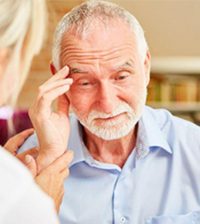- Antibiotics Probably Won’t Ease Your Cough, Even If Infection is Bacterial: Study
- U.S. Medical Drug Shortages Reach Record High
- One in 3 Women With Migraines Say Attacks Occur During Periods
- Pets Are Passing Drug-Resistant ‘Superbugs’ to Their Owners
- Americans Short on Sleep, Stressed Out About It: Poll
- Researchers Probe Moments of Lucid Clarity Among People With Advanced Dementias
- ‘Feeling Like a Burden’ Can Be Motivator for Suicide in Preteens
- Chemicals Stored in Your Garage Could Raise Odds for ALS
- Exercise Could Help Your Heart by Calming the Brain: Study
- Planning Safe Summer Camp Fun for Kids With Allergies & Asthma
What You Need to Know When Prescribed an Opioid Painkiller

There are a number of questions you should ask if a doctor or other health care provider prescribes opioid painkillers such as Oxycontin, Vicodin, codeine and morphine, the U.S. Food and Drug Administration says.
While approved to treat certain kinds of acute and chronic pain, opioids can have serious side effects, and the United States is in the mist of an opioid overuse epidemic.
First, ask why you need the medication, is it right for you, and are there non-opioid options?
If your health care provider thinks an opioid painkiller is the best choice, ask the doctor to prescribe the lowest dose and the smallest quantity. Find out when to call to follow-up with the health care provider on how well the opioid is working, as well as when and how to stop or taper off use of the drug, the FDA said in a news release.
To reduce the risk of side effects, take the medication exactly as prescribed. If you still have pain, call your health care provider. Do not take an extra dose.
Learn about serious side effects, such as excessive sleepiness or a craving for more of the medication, so you and your family will know when to call a doctor or go to the hospital. Ask your pharmacist if your prescription comes with a medication guide, which are paper handouts that come with many prescription medicines and provide detailed information.
“Tell your health care provider about any history you have had with substance misuse or addiction to drugs or alcohol and if you have a history of smoking cigarettes. You should also tell your health care provider if anyone in your family has had a problem with substance misuse, alcoholism or drug addiction,” the FDA said.
“It is also very important that you tell your health care provider about all of the medicines you are taking, especially those prescribed to treat anxiety, sleeping problems, or seizure. Even medicines you take only occasionally could interact with the opioid pain medicine. Ask your health care provider about possible interactions,” the FDA advised.
It’s a good idea to keep opioids locked up to prevent youngsters from accidentally taking them or from other people stealing them. Never share opioids with other people. What’s safe for you could lead to an overdose for someone else.
“You should discuss with your doctor whether you should also receive a prescription for naloxone, a drug that can reverse the effects of an opioid overdose and could save lives. In many cases, it makes sense to be prepared for potential problems by keeping naloxone in your home,” the FDA said.
According to federal health officials, the United States is in the grip of an unprecedented opioid epidemic. More people died from drug overdoses in 2014 (the most recent statistics available) than in any year on record. And the majority of drug overdose deaths — more than six out of 10 — involved an opioid.
More information
The American Academy of Family Physicians has more on the safe use, storage and disposal of opioid painkillers.
Source: HealthDay
Copyright © 2024 HealthDay. All rights reserved.










